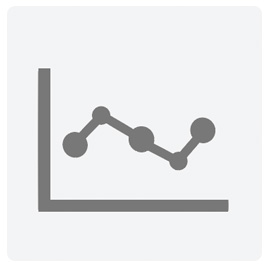Economic Development includes research and public service funding, degrees in STEM and health fields, businesses receiving development assistance, and where UW alumni live.
Measures of performance and success should be viewed through the lens of university context and mission. The Universities of Wisconsin have differences in missions, students served, and resource capacity. All UW universities work to create environments that respond to their unique mission-driven mandates and support their student success goals.
Technical Notes
Economic Development
Research and public service funding expenditures
Research expenditures are for activities funded from all sources that are specifically organized to produce research outcomes, including individual and/or project research as well as those of institutes and research centers. Public service expenditures include activities established primarily to provide noninstructional services beneficial to individuals and groups external to the institution. Values are not adjusted for inflation. Beginning in fiscal year 2020, institution totals include the former UW Extension and UW Colleges. (Due to an IPEDS decision to exclude costs incurred under the UW-Colleges and UW-Extension administrative entities from their survey structure, associated research and public service funding are not reflected in fiscal year 20189 totals.) Source: National Center for Education Statistics (NCES) Integrated Postsecondary Education Data System (IPEDS). Note: beginning in fiscal year 2010, operation and maintenance expenses were distributed among other expenses and no longer reported as a separate category.
Degrees in STEM and health fields
Science, Technology, Engineering, and Mathematics (STEM) and Health fields are defined using the following Classification of Instructional Program (CIP) 2010 areas: Agricultural Sciences (01.0308, 01.80, 01.09, 01.10, 01.11, 01.12), Natural Resources and Conservation (03), Computer Science and Info Systems (11), Engineering (14), Engineering Technology (15), Life/Biological Science (26), Mathematics and Statistics (27), Multi/Interdisciplinary Studies (30.01, 30.19, 30.27, 30.30, 30.70, 30.71), Kinesiology (31.0505), Physical Science (40), Science Technologies (41.9999), and Health (51).
UW STEM and health degrees are offered at the bachelor’s and graduate/professional levels. UW-Platteville did not confer degrees in health programs prior to 2021-22. UW Colleges did not offer a STEM or health degree, but provided the foundation for students interested in STEM or health majors through a certificate program and areas of emphasis in STEM or health-related fields. UW and national proportions are based on bachelor’s and graduate/professional level degrees. National proportions are based on public four-year institutions. Source: National Center for Education Statistics (NCES) Integrated Postsecondary Education Data System (IPEDS).
Projected employment in STEM and health occupations is available from the Wisconsin Department of Workforce Development.
Small business development center clients
Clients are counted at each UW university served during each year. At the end of FY18, the Wisconsin Business AnswerLine (BAL) specialty center was transferred from UW-Madison to the SBDC State Office, housed within UW Administration. The Wisconsin Innovation Service Center (WISC) is combined with UW-Whitewater’s local SBDC center. Service provided by UW-Extension through FY18 is included within UW Administration. Service to southwestern Wisconsin transferred from UW-Platteville to the SBDC State Office, housed within UW Administration, in January 2016. UW-Stout does not have a local SBDC center. UW-Stout’s numbers through December 2016 reflect its Center for Innovation and Development (CID) specialty center. UW-Stout conducts most of its business development and support through the UW-Stout Discovery Center (not shown), part of the National Institute of Standards and Technology Manufacturing and Extension Partnership program. Wisconsin SBDC assists a small number of out-of-state residents who have businesses in Wisconsin or intend to start a business in Wisconsin.
UW bachelor’s degree recipients by address in 2021
UW bachelor’s degree recipients are shown by their current addresses, provided by UW universities and their alumni associations. Included are alumni who graduated 2009-10 and more recently and who have an address with a U.S. zip code. Field of study is the academic program area of the alumnus’ bachelor’s degree. Residency status reflects the fee basis when enrolled as a student.
UW bachelor’s degree recipients living in Wisconsin in 2021
The percent of UW bachelor’s degree recipients living in Wisconsin is based on current addresses provided by UW universities and their alumni associations. Denominators include graduates with international or unknown addresses. Field of study is the academic program area of the alumnus’ bachelor’s degree. Residency status reflects the fee basis when enrolled as a student.
UW bachelor’s degree recipients living in Wisconsin three years after graduation
The percent of UW bachelor’s degree recipients living in Wisconsin is shown for graduates in 2011-12 by address in 2015, graduates in 2014-15 by address in 2018, and graduates in 2017-18 by address in 2021. Addresses were provided by UW universities and their alumni associations. Denominators include graduates with international or unknown addresses. Field of study is the academic program area of the alumnus’ bachelor’s degree. Residency status reflects the fee basis when enrolled as a student.
Career outcomes of undergraduates
UW universities collect information on initial career outcomes of undergraduates following standards and protocols of the National Association of Colleges and Employers (NACE): https://www.naceweb.org/job-market/graduate-outcomes/first-destination/standards-and-protocols.








